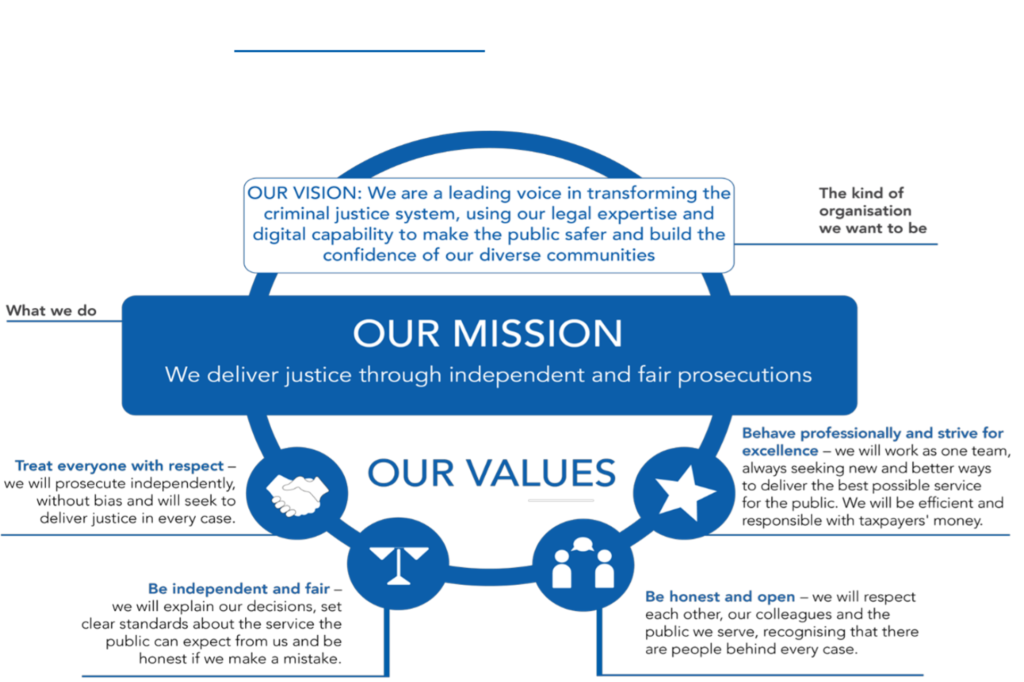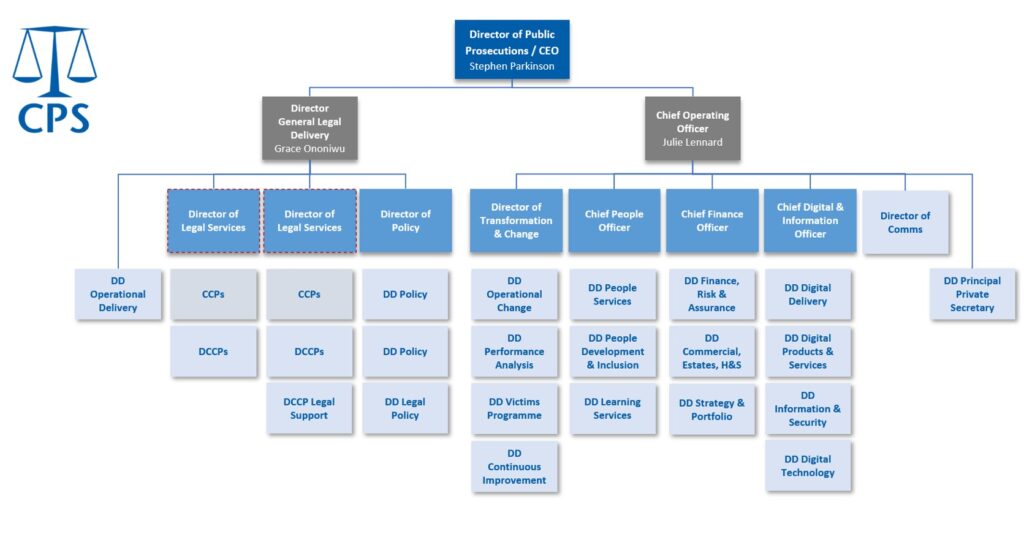The Crown Prosecution Service (CPS) prosecutes criminal cases that have been investigated by the police and other investigative organisations in England and Wales, making operational decisions fairly and objectively by following our Code for Crown Prosecutors, and independently of the police and government. If a case meets our legal test we charge the suspect, present the evidence and ask a court to find the defendant guilty.
You can find out more about our role on our website here.

The organisation
Over 7,000 people work for the CPS, across England and Wales in a variety of roles. Almost half the employees are lawyers, who are responsible for deciding whether to prosecute cases, and represent the Crown in many hearings in the courts. The rest work to assist prosecutors preparing cases for court, or in other professions including operational delivery, finance, human resources, communications, policy, and digital and technology services. The CPS Board agrees the strategic direction and priorities for the CPS and provides a forum for constructive challenge on proposals and the implementation of decisions by the DPP and the executive team. It plays a key role in ensuring that the organisation is equipped to provide a professional, efficient and high-quality service.
Context
The CPS is one part of a criminal justice system grappling with high demand, increasing complexity, and significant delays. We have a key role to play in improving the quality of legal decision making, improving the service received by victims, streamlining our systems and processes, making best use of digital tools and AI technology, investing in recruiting and retaining the best people, and playing our part in delivering government priorities on criminal justice (including tackling violence against women and girls). Our position with the system, between the police and the courts, provides the opportunity to improve the system.
Great place to work
The CPS is passionate about ensuring that we’re a top performing organisation and a great place to work. Our culture of inclusion is underpinned by our staff networks and inclusion allies, alongside our mental health first aiders programme and wellbeing sessions. We commit to offering our employees the experience where you can: undertake impactful, purposeful work that makes a difference to the local communities; learn and grow with access to the right opportunities and resources; and feel valued, trusted and included.
The Senior Team



